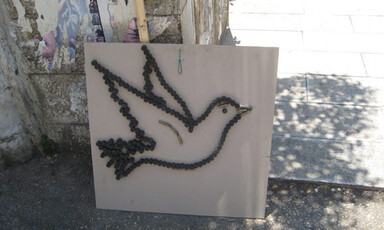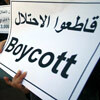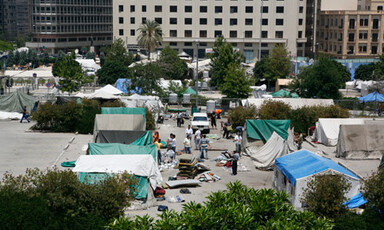
Ramallah commemorates the ongoing Nakba
28 May 2008
As US President George W. Bush sang his messianic “happy birthday” speech to the Israeli Knesset, 50,000 or so demonstrators calling for the rightful return of the Palestinian refugees crammed into Ramallah’s Manara Square. Just a few meters away from the mass demonstration, the Baladna Cultural Center opened its contribution to the Nakba commemoration events: a three-day exhibit entitled From the Scent of Bil’in’s Wall. The exhibit closed on 17 May, and we were the first guests that day. Read more about Ramallah commemorates the ongoing Nakba








